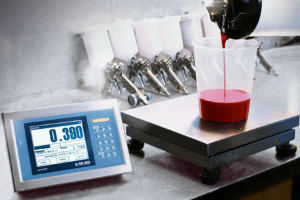World’s First Climate-Friendly Ice Cream ‘MaxiMootral’ Unveiled in London
A groundbreaking achievement in the fight against climate change took centre stage in London as the world’s first climate-friendly ice cream made its debut at a tasting event.
Developed through a collaboration between British agtech company Mootral and renowned ice cream destination Ruby Violet, the innovative ice cream, named ‘MaxiMootral,’ represents a significant step towards addressing the pressing climate crisis.
A Delicious Solution to Climate Change
MaxiMootral, the new climate-friendly ice cream, has captured the attention of sustainability enthusiasts and ice cream lovers alike. Crafted with care, it is made using milk sourced from cows fed with Mootral’s methane-reducing ruminant feed at a farm located in Lancashire.
What’s more, this unique approach not only ensures the quality of the ice cream but also emphasises Mootral’s dedication to environmental stewardship.
Additionally, the partnership between Mootral and Ruby Violet not only demonstrates the potential for culinary delights with a reduced carbon footprint but also highlights the importance of collaborative efforts in mitigating climate change.
With its foundation in 2020, Mootral raised an impressive 2.5 million Euros (approximately £2.1 million) in funding, underscoring the growing interest in sustainable solutions.
The Science Behind Mootral Ruminant
At the heart of MaxiMootral’s climate-friendly composition lies Mootral Ruminant, a 100% natural supplement developed by British scientists. This groundbreaking supplement utilises the power of compounds from garlic and extracts of citrus to aid digestion in cows.
Scientifically proven to reduce methane emissions from cow burps by up to 38%, Mootral Ruminant simultaneously enhances cattle yield and improves their overall health. This innovation has paved the way for the production of climate-friendly milk and beef, making significant strides towards a more sustainable food chain.
The CEO and founder of Mootral emphasised the growing demand for sustainable choices among British consumers. The company’s collaboration with British farmers is a testament to their commitment to producing high-quality milk with a significantly lower carbon footprint, thereby meeting the needs of environmentally conscious individuals.
Path to Net Zero
In line with the United Kingdom‘s commitment to achieving net-zero greenhouse gas emissions by 2050, various industries, including agriculture, have embarked on a journey to explore innovative approaches.
With agriculture accounting for 11% of the UK’s emissions, and nearly half of it stemming from enteric methane emissions from cows, the impetus for change is strong. Companies like Mootral are at the forefront of this movement, leveraging nature-based and synthetic feed additives to significantly reduce methane emissions, thereby making substantial contributions to a sustainable future.
In addition to Mootral Ruminant, another noteworthy advancement is the introduction of ZELP, a wearable device that captures and converts methane to carbon dioxide using cutting-edge technology.
While the challenge of cost remains a hurdle, companies like Mootral are pioneering the use of carbon credits to scale their efforts. By selling cattle-generated carbon offsets, Mootral not only subsidises the cost of their feed but also offers businesses a tangible means to support their climate goals.
A Bright Future with CowCredits
The concept of CowCredits has emerged as a compelling solution to promote sustainability in animal agriculture. Each CowCredit represents a reduction of 1 tonne of CO2 emissions, making them a valuable asset for businesses striving to meet their environmental, social, and governance (ESG) targets.
These credits are certified by Verra, a respected non-profit organisation that plays a vital role in standardising carbon emissions reductions globally. What’s more, the emergence of CowCredits underscores the essential role of financial solutions in the ongoing battle against climate change.
As global interest in emissions reduction strategies, innovative technologies, and impactful financial solutions intensifies, the adoption of CowCredits gains momentum. These credits not only incentivise sustainable practices among farmers but also offer a promising future for those transitioning to environmentally responsible methods in animal agriculture.
A Sweet Conclusion
The unveiling of MaxiMootral, the world’s first climate-friendly ice cream, goes beyond its delightful taste. It symbolises the power of collaboration, innovation, and sustainability in the face of one of humanity’s most pressing challenges.
Through the ingenuity of companies like Mootral and the support of organisations like Verra, the pathway to a net-zero future becomes clearer. As consumers savour the taste of a delicious treat that reflects a commitment to the planet, it’s evident that the journey towards a climate-friendly world is not just a distant dream – it’s an exciting reality unfolding before everyone’s eyes.
News Credits: ‘World’s first climate-friendly ice cream’ made with milk from cows eating methane-reducing ruminant feed
Things you may also like:















